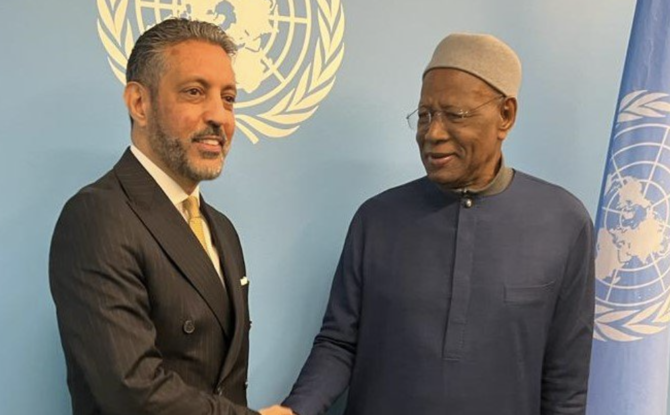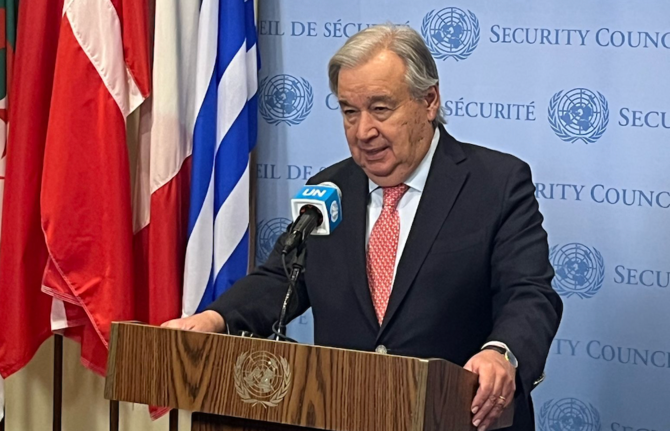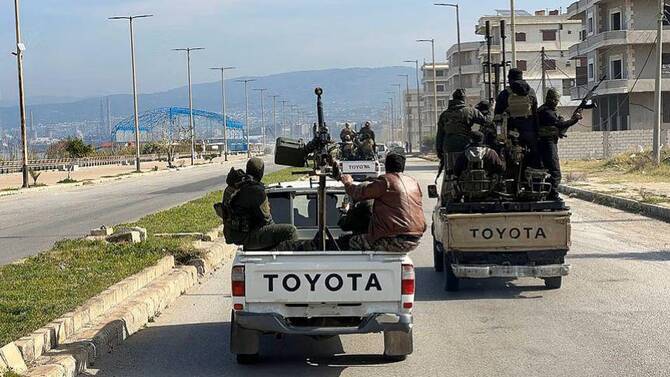Political factions have been vying for power amid a crisis and impasse that has paralyzed the country for more than a decade, since the fall of former leader Muammar Gaddafi in 2011.
Despite a number of attempts to resolve the differences between warring groups and reach a consensus over the sharing of powers, Libya continues to be bitterly divided between the Government of National Accord in Tripoli and a rival administration in the east of the country allied with Gen. Khalifa Heftar, who commands the Libyan National Army. Each side is supported by various regional and international parties.
During a discussion session in Washington on Thursday, organized by the Middle East Institute and attended by Arab News, expert speakers shared their views of the current situation in Libya, with many emphasizing the need to reinvigorate the process for negotiations between rival groups so that an agreement might be reached and, ultimately, democratic elections held.
Earlier in the week, the UN’s envoy to Libya, Abdoulaye Bathily, announced a new proposal for an election process.
He said that “building on previously reached agreements among Libyan stakeholders” he had “decided to launch an initiative aimed at enabling the organization and holding of presidential and legislative elections in 2023.”
Stephanie T. Williams, a non-resident senior fellow at nonprofit public policy organization the Brookings Institution’s Center for Middle Eastern Policy and a former special advisor to the UN on Libya, said that while the situation in Libya is extremely complex, the primary impediment to elections is the “eligibility requirement” for candidates.
She said there is a democracy dilemma, in that prior constitutional negotiations showed that Libyans want a strong presidential system that can usher in stability and unity among the warring factions.
One of the key sticking points, Williams explained, is “who would come to power,” in light of previous elections in which “controversial candidates” created more friction than unity and ultimately brought the political process grinding to a halt.
Taher El-Soni, the Libyan ambassador to the UN, said during the session that the rival factions in the country have come to represent the interests of their foreign backers, resulting in even more conflict.
He argued there has always been support for an interim government that can organize and hold elections, on an accepted constitutional basis, but this has not happened because foreign countries and groups with conflicting interests have interfered in Libyan affairs.
The Libyan envoy acknowledged that the responsibility for the failure to reach an overarching agreement to resolve the conflict between rival groups lies not only with other countries in the region and beyond, or the UN, but also with Libyans themselves.
However, no single group has the power to impose order on the entire country, hence the long-running stalemate, El-Soni added.
“Libyans remain at the mercy of regional and international players (and their differing ideas of) how they want to deal with Libya,” he said.
“Libya cannot be disconnected from the geopolitics and the regional challenges that are happening all around. We are a playground as a result of those conflicts.”
El-Soni said it remains to be seen whether Bathily’s proposal can succeed and much would depend on the selection criteria for candidates.
Mary Fitzgerald, a non-resident scholar at the Middle East Institute, specializing in the Euro-Mediterranean region with a particular focus on Libya, said that while the official reconciliation process continues to go round in circles, unofficial efforts are also taking place based on personal connections.
She said she has observed unusual, and unlikely, signs of rapprochement between some key figures who were previously at odds with each other but now appear to have reached agreement on certain issues.
“I think we could see this continuing outside the structured reconciliation process,” she said.






















